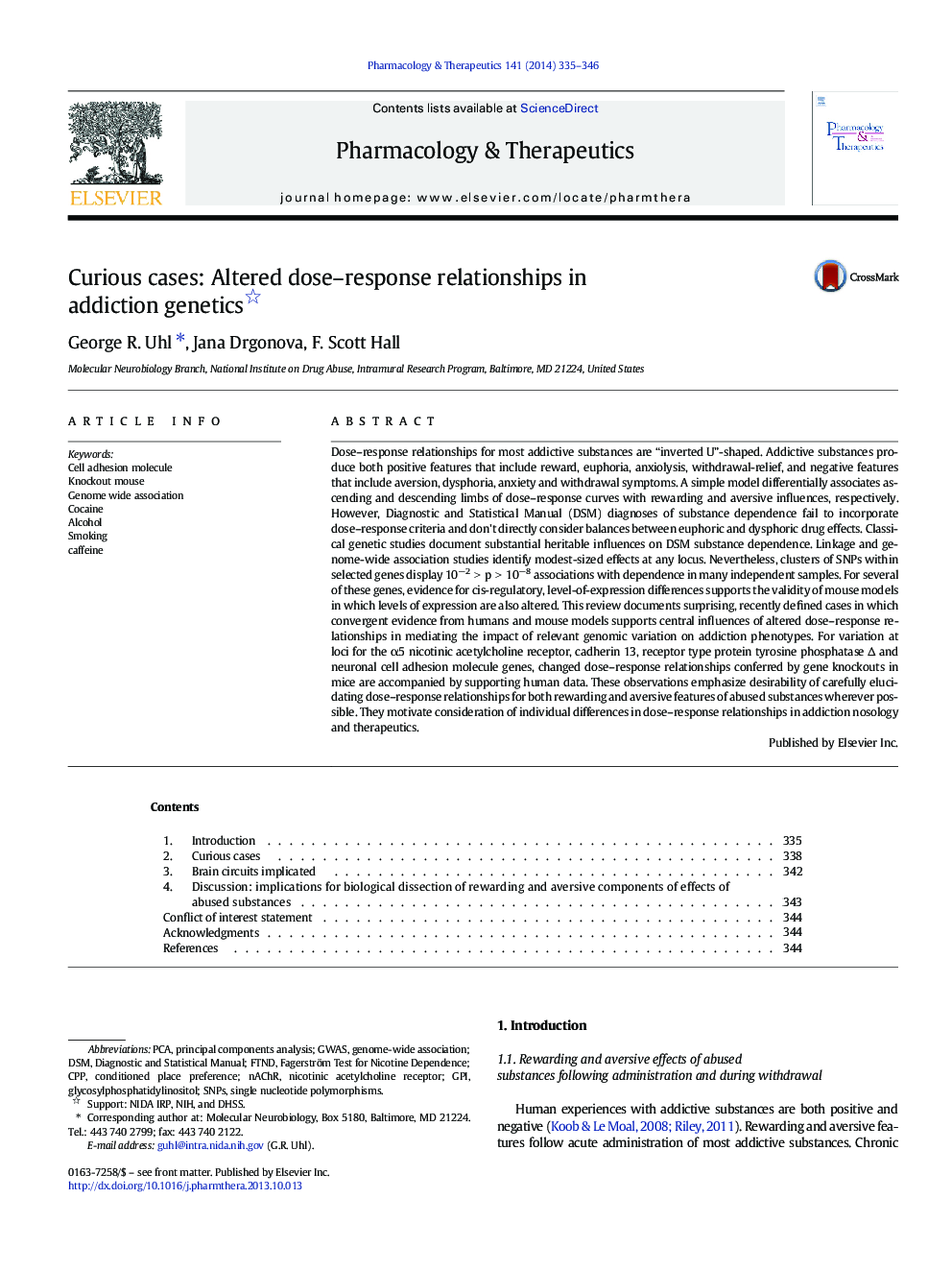| کد مقاله | کد نشریه | سال انتشار | مقاله انگلیسی | نسخه تمام متن |
|---|---|---|---|---|
| 2563804 | 1127566 | 2014 | 12 صفحه PDF | دانلود رایگان |
Dose–response relationships for most addictive substances are “inverted U”-shaped. Addictive substances produce both positive features that include reward, euphoria, anxiolysis, withdrawal-relief, and negative features that include aversion, dysphoria, anxiety and withdrawal symptoms. A simple model differentially associates ascending and descending limbs of dose–response curves with rewarding and aversive influences, respectively. However, Diagnostic and Statistical Manual (DSM) diagnoses of substance dependence fail to incorporate dose–response criteria and don't directly consider balances between euphoric and dysphoric drug effects. Classical genetic studies document substantial heritable influences on DSM substance dependence. Linkage and genome-wide association studies identify modest-sized effects at any locus. Nevertheless, clusters of SNPs within selected genes display 10−2 > p > 10−8 associations with dependence in many independent samples. For several of these genes, evidence for cis-regulatory, level-of-expression differences supports the validity of mouse models in which levels of expression are also altered. This review documents surprising, recently defined cases in which convergent evidence from humans and mouse models supports central influences of altered dose–response relationships in mediating the impact of relevant genomic variation on addiction phenotypes. For variation at loci for the α5 nicotinic acetylcholine receptor, cadherin 13, receptor type protein tyrosine phosphatase Δ and neuronal cell adhesion molecule genes, changed dose–response relationships conferred by gene knockouts in mice are accompanied by supporting human data. These observations emphasize desirability of carefully elucidating dose–response relationships for both rewarding and aversive features of abused substances wherever possible. They motivate consideration of individual differences in dose–response relationships in addiction nosology and therapeutics.
Journal: Pharmacology & Therapeutics - Volume 141, Issue 3, March 2014, Pages 335–346
